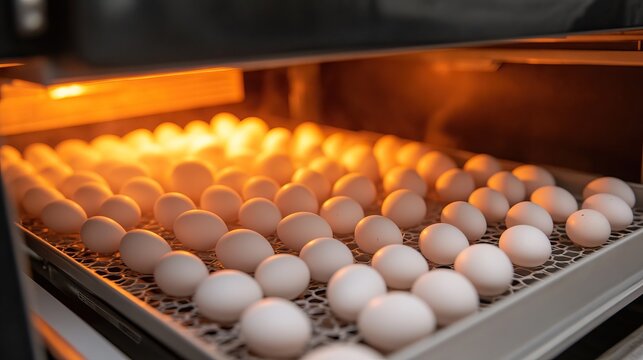When it comes to incubating chicken eggs naturally vs artificially, enthusiasts and farmers often find themselves weighing the benefits and drawbacks of each method. At the heart of this discussion lies the quest for efficiency, success rates, and the well-being of the chicks. Both methods have their unique charms and challenges, and understanding these can help you make an informed decision.

Understanding Natural Incubation
The Broody Hen
In natural incubation, a broody hen plays the pivotal role. She offers warmth, turns the eggs, and provides the right humidity levels. This method is as nature intended, allowing the hen to care for her eggs until they hatch.
Benefits of Natural Incubation
Natural incubation is cost-effective and requires minimal intervention. The broody hen instinctively knows how to maintain the right conditions for her eggs. Additionally, the hen bonds with her chicks immediately after hatching, offering protection and teaching them essential survival skills.
Challenges of Natural Incubation
However, relying on a hen can be unpredictable. Not every hen becomes broody, and those that do may abandon the nest. The number of eggs that can be incubated at once is also limited.
Exploring Artificial Incubation
What is Artificial Incubation?
Artificial incubation involves using an incubator, a machine designed to mimic the conditions provided by a broody hen. This method allows for greater control over the incubation process.
Benefits of Artificial Incubation
Artificial incubation offers the advantage of hatching a larger number of eggs simultaneously. It also provides consistent conditions, leading to a higher success rate. Farmers can plan and predict hatching times more accurately, which is crucial for commercial operations.
Challenges of Artificial Incubation
Artificial incubation requires a significant initial investment in equipment. It also demands ongoing attention to maintain temperature, humidity, and regular egg turning. For more details on maintaining humidity, check out this guide.
Comparing Success Rates
Natural vs Artificial
The success rate of both methods can vary. Naturally incubated eggs have a success rate of around 70-80%, while artificial methods can reach up to 90% with proper management.
The Role of Temperature and Humidity
Both methods demand careful attention to temperature and humidity. Natural incubation relies on the hen’s instincts, while artificial incubation requires precise adjustments. For more insights, visit this external guide.
Health Implications for Chicks
Chicks hatched naturally are often believed to be healthier due to the initial mother-chick bonding. However, with proper care, artificially incubated chicks can thrive just as well. Learn about chick care post-hatching.
Cost Considerations
Natural incubation has minimal costs, while artificial incubation involves purchasing and maintaining equipment. However, the latter can be more cost-effective for larger operations.
Choosing the Right Method for You
Your choice between natural and artificial incubation depends on your needs and resources. Hobbyists may prefer natural methods for small-scale operations, while commercial ventures might lean towards artificial incubation.
Environmental Impact
Artificial incubators consume electricity, contributing to a carbon footprint. Natural incubation uses the hen’s body heat, making it more environmentally friendly.
Experience and Learning
Natural incubation offers a unique learning experience as you observe the hen’s instincts. On the other hand, artificial incubation provides insights into technology and science.
Expert Opinions
Experts often recommend a mixed approach, using natural methods when possible and resorting to artificial incubation for larger batches or when a broody hen isn’t available.
Conclusion
In the debate of incubating chicken eggs naturally vs artificially, both methods have their place. Understanding their intricacies can help you choose the best approach for your situation. For beginners, a beginner’s guide can be invaluable.

FAQs
1. Can all hens be used for natural incubation?
Not all hens become broody. Breeds like Silkies and Cochins are more likely to incubate eggs naturally.
2. How long does it take for eggs to hatch?
Chicken eggs typically hatch in 21 days, whether naturally or artificially incubated.
3. What is the ideal temperature for artificial incubation?
The ideal temperature for artificial incubation is around 99.5F (37.5C).
This article contains affiliate links. We may earn a commission at no extra cost to you.











